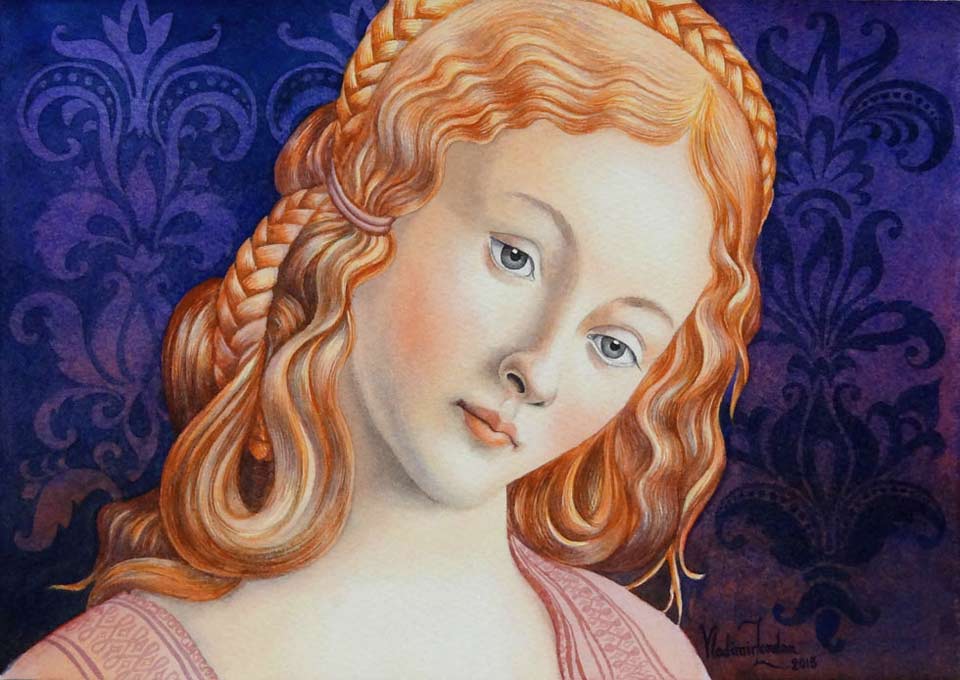Glazing In Watercolor
Are you an artist who loves to use watercolors? If so, have you ever tried glazing in watercolor? Glazing is a technique that can add depth, luminosity, and interest to your watercolor paintings. In this blog post, we will dive into the world of glazing in watercolor and explore its benefits.
Pain Points
Without the use of glazing, watercolor paintings can sometimes appear flat or lacking in depth. This can be frustrating for artists who want to create paintings with more visual interest and complexity. Additionally, achieving the desired color intensity can be difficult without the use of layers, which glazing allows for.
The Target of Glazing in Watercolor
The target of glazing in watercolor is to create a rich and luminous finish to your painting. This technique allows the artist to create multiple layers of color that interact with each other and ultimately lead to a more complex and visually appealing piece.
Summary of Main Points
In summary, glazing in watercolor can add depth, luminosity, and complexity to your watercolor paintings. Without it, paintings may appear flat and lack visual interest. By layering colors and allowing them to interact with one another, glazing creates a rich and dynamic finish to your artwork.
Benefits of Glazing in Watercolor
One of my personal experiences with glazing in watercolor was during a painting of a flower garden. The use of glazing allowed me to layer colors and create a sense of depth, particularly in the leaves and petals of the flowers. By building up layers of transparent color, I was able to capture the luminosity of the garden in a way that would not have been possible with a single layer of paint.
/glazing-57c739ed3df78c71b6113092.jpg)
How to Glaze in Watercolor
To glaze in watercolor, you'll need to start by painting a base layer of color. Once that layer has completely dried, you can begin to paint a layer of transparent color over the top. You can repeat this process as many times as necessary to create the desired depth and complexity in your painting. Be sure to use transparent watercolors for the best results.

Glazing with Different Colors
When glazing in watercolor, it's important to consider the colors you're using. For example, if you're glazing a red layer over a blue layer, you'll end up with a purple hue. By layering different colors, you can create a wide range of hues and tones that can add depth and complexity to your painting.

Glazing Over Details
Another benefit of glazing in watercolor is that it allows you to add details without losing the transparency and luminosity of the painting. By glazing over the details, you can create a sense of depth without requiring additional layers of paint.
Question and Answer
Q: Can I glaze over dry paint?
A: Yes, you can glaze over dry paint. Just be sure to use a transparent watercolor for best results.
Q: Do I need to wait for the paint to dry between each layer when glazing?
A: Yes, it's important to allow each layer to dry completely before adding the next layer. This will prevent the colors from mixing together and becoming muddy.
Q: Can I glaze with opaque watercolor?
A: No, glazing is best done with transparent watercolors. Opaque watercolors will not allow the layers underneath to show through.
Q: Is glazing a difficult technique to master?
A: Glazing can take some practice to get right, but with patience and experimentation, it's a technique that any watercolor artist can master.
Conclusion
In conclusion, glazing in watercolor can add depth, luminosity and complexity to your paintings. Using transparent watercolors and layering them over one another, this technique works wonders in layering color and adding interest to a flat painting. It takes a little practice but once you’ve got the hang of it, you’ll be amazed at the radiant colors you can achieve in your artwork.
Gallery
Glazing In Watercolor Painting Technique

Photo Credit by: bing.com / glazing
Watercolor Techniques: Overlaying Washes (Glazing)
/glazing-57c739ed3df78c71b6113092.jpg)
Photo Credit by: bing.com / glazing watercolor techniques washes color layers overlaying
WATERCOLOR GLAZING TECHNIQUE - Inkstruck Studio

Photo Credit by: bing.com / watercolor glazing inkstruck
The Rita's Art Blog: Tuesday's Tips And Techniques For Watercolor Painting

Photo Credit by: bing.com / glazing
WATERCOLOR GLAZING TECHNIQUE - Inkstruck Studio

Photo Credit by: bing.com / watercolor glazing layering inkstruck technique
